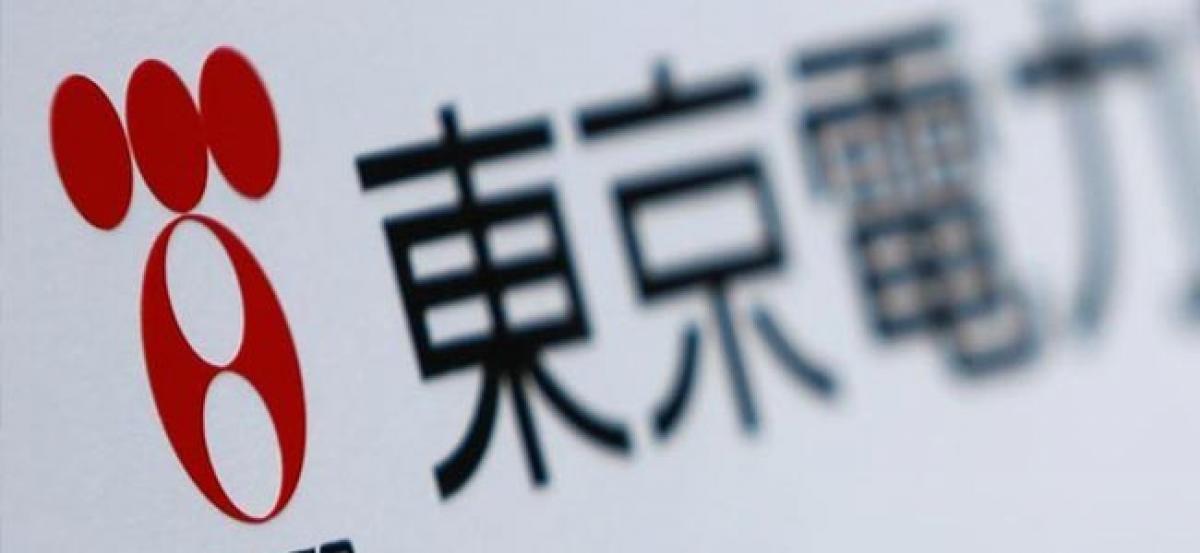Live
- Sri Lanka issues flood warnings for 12 flood-prone river basin areas
- IPL 2025 Auction: Venkatesh Iyer sold to KKR for Rs 23.75 cr, Stoinis joins PBKS for Rs 11 crore
- Kharge to lead Opposition strategy meeting as Parliament session kicks off on Monday
- Three killed in firing as violence breaks out amid Sambhal mosque survey in UP
- IPL 2025 Auction: Ravichandran Ashwin, Rachin Ravindra return to Chennai Super Kings
- Manipur: After over a week's closure, regular classes to resume in educational institutions
- Govt open to discuss all issues, says Kiren Rijiju on eve of Winter Session of Parliament
- Pakistan reports three new polio cases, 2024 tally reaches 55
- Multifold Increase in migratory bird population at TN bird sanctuary
- Archaka Maha Sabha in Jogulamba Gadwal District Highlights Key Demands for Priests' Welfare
Just In
Tepco, investors discussing first bond sale since Fukushima


Tokyo Electric Power (Tepco) is gauging demand for its first bond offering since the 2011 Fukushima nuclear calamity, with some market
Tokyo Electric Power (Tepco) is gauging demand for its first bond offering since the 2011 Fukushima nuclear calamity, with some market participants expecting a sale as early as February, people familiar with the plans said.
Once-sceptical investors are now more comfortable with the utility's outlook after government moves to reassess decommissioning and compensation costs, bankers and investors who asked not to be identified told Thomson Reuters DealWatch.
Tepco is likely to have to pay investors a 1 percentage point premium above Japanese government bonds, considered a rich yield pick-up, as potential buyers see an implicit government guarantee for the basically nationalized company, the people said.
That's about three times more yield pick-up than on other electric utility bonds, they said. While the sale's size has not been decided, potential maturities are three-, five- and 10-years, the people said.
The company was in discussions last year with investors to sell as much as 330 billion yen ($2.8 billion) of bonds.
A Tepco spokesman said the company plans to issue bonds by the end of March but declined to comment on specific target dates or sizes.
A CHANGE IN TIMING?
The timing could be pushed back as the Japanese government wants Tepco to delay the bond sale until after April, when legal changes that let it give more financial support to the utility are enacted, said a person familiar with the government's thinking.
But the company may have to hurry as gains in financial markets since Donald Trump's election as U.S. president may falter, said one investor.
"If investors switch to risk-off mode because of a waning of the Trump rally in the New Year or the market enters an adjustment phase, selling bonds may be more difficult, so an issue by the end of this year would have been ideal," Hiroaki Hayashi, director of the investment department at Fukokushinrai Life Insurance Co. said.
Seen as unrealistic only weeks ago, Tepco has a better chance of raising debt after a government panel recently updated its estimates on what compensation the company owes and how costs for decommissioning the wrecked Fukushima plant will be shared.
Tepco was once Asia's biggest electricity utility and one of Japan's largest corporate borrowers. But the March 2011 nuclear crisis at Fukushima, sparked by an earthquake and tsunami, brought the company to its knees.
Before the calamity, Tepco was a frequent bond issuer with a credit rating as high as the government, and considered a corporate benchmark.
It has 3.45 trillion yen of bonds outstanding with 625 billion yen due in 2017 and 570 billion yen due in 2018, according to its website.
In the year starting April 2010, which ended with the meltdowns at its Fukushima Daiichi station, Tepco sold 235 billion yen of bonds, slightly less than a year earlier.
JUNK RATING
The Fukushima losses caused its credit rating to be cut to junk by most agencies and led to a bailout by the government, which took a controlling 50.1 percent stake.
With the government considering splitting Tepco's nuclear business and forming alliances with other atomic operators, the issue of restarting the utility's Kashiwazaki Kariwa nuclear plant, the world's biggest, has faded.
While oil and gas prices have risen in recent weeks, they are still well below highs in the aftermath of the nuclear disaster that led to a shutdown of most of Japan's reactors, so Tepco's costs remain manageable.
Tepco is aiming to sell the debt through a unit in charge of its power transmission business, Tepco Power Grid Inc, to separate risks from operations dealing with the disaster.

© 2024 Hyderabad Media House Limited/The Hans India. All rights reserved. Powered by hocalwire.com






